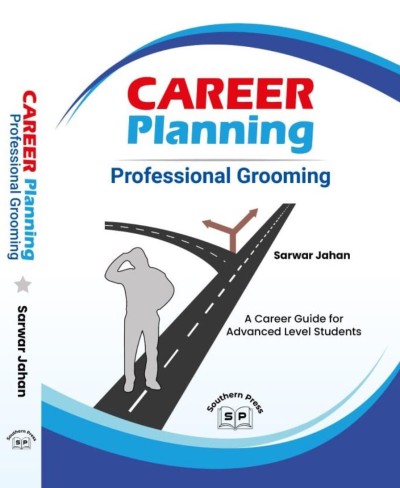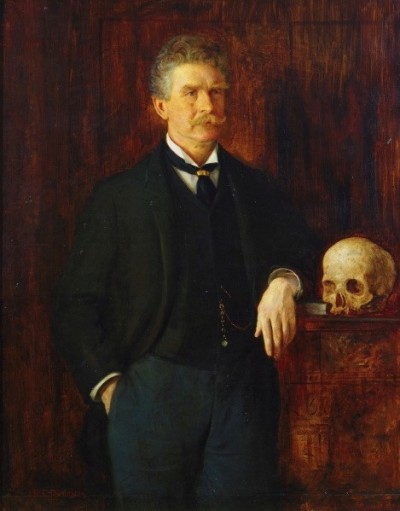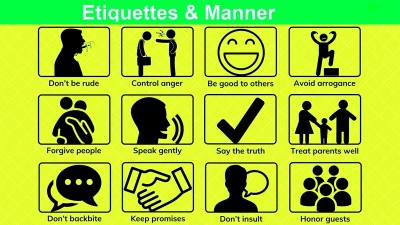Course description
What is Internship
A strong, rigorous academic component must complement the work experience. Internships are an opportunity to apply academic concepts in practice and to explore possible future occupations. The experiential learning and skills acquired from internships and/or research experience on a resume cause you to more marketable. If you're seeking an internship overseas, you'll got to start your job search process a minimum of six months to a year beforehand , counting on the countries that you will be applying to. If you are seeking an internship locally, you will need to start your job search process at least a semester to a year in advance, depending on the services that you will be working. Typically, students work 3-6 months with an organization. A faculty member advises the project and evaluates the student's work.
Most undergraduate degrees have a mandatory internship as a part of the curriculum. Internships in Bangladesh are usually unpaid due to a high supply of graduates in comparison to the number of job posts. Internships in reputable companies are almost always obtained through personal contacts and references. Very rarely do large companies hold internship intake programs but only outstanding students are able to obtain a place. At times, it is also not uncommon for companies to ask for a small training fee in lieu of the costs incurred by the company
Objective of Internship
-To analyze the practical implication of theoretical knowledge acquired during the academic program.
-To gain practical knowledge about organization.
-To understand the major functions along with products and services of the organization.
Types of internships
Internships exist in various industries. Here are two primary types of internships that exist.
1. Work experience internship: Most often this will be in the third or fourth year of the University. The placement can be from 2 months to sometimes even one full academic year. During this period the student is supposed to use the things he/she has learned in College/University and put it in practice. This way the student gets work experience in their field of study. The gained experience will be helpful to finish up the last year of the study.
2. Research internship (graduation) or dissertation internship: This is mostly done by students who are in their last year. With this kind of internship a student does research for a particular company. The company can have something that they feel like they need to improve, or the student can choose a topic within the company themselves. The results of the research study will be put in a report and often will have to be presented.
Why Intern?
Each year, students take advantage of internships to explore careers, to gain professional experience, and to earn academic credit. Internships give an opportunity to:
• Find out what it is like to work in a specific field.
• Make contacts with professionals in the field.
• Gain academic credit. Student must work with a faculty and register in advance to receive academic credit.
• Strengthen your resume. Related experience is often necessary before an employer/graduate program will consider your application.
• Jump-start your full-time job search. Employers often hire their interns for full-time employment after graduation.
Benefits of Internships
Some internships in industry and in the executive area of may pay a reasonable stipend. Many sector pay little or nothing; however, if you are work-study eligible you may be able to negotiate a salary at the nonprofit of your choice. Either paid or unpaid, the experience in an internship can be extremely valuable. Reports from a variety of sources show that Compared to the average students who participate in internship programs:
n They do better in education
n They are more likely to graduate
n They are ahead in preparation for their field
n They are viewed as better candidates in job interviews
n They receive more job offers
n They earn higher starting salaries
n They likely to get the job with the employer they want after graduation
n They have better communication skill
n They know how to think critically,
n They have teamwork ability ,
n They have leadership capacity,
n They are self managed
n They are fast learner, interpersonal diversity, ethics, social responsible,
n and they have technical knowledge.
How to Find and Apply for an Internship
n Determine the type of internship you would like to have.
Your major, personal interests or career goals can determine the type of internship that interests you. If you have questions about which career field to enter, get help from advisor.
n Ways to Find an Internship
Browse through company directories. You can send a letter of inquiry to the contact person asking if they have any internship positions available. Use personal relationships. Check your department bulletin boards for postings to be eligible for on-campus recruiting with employers that are looking for student’s employment. This also allows you to be included in resume referrals to companies hiring internship students.
n How to Apply
Each internship has a different way of applying, but most require a cover letter, resume, and an interview. You need to write a cover letter. Once you have a typed draft, feel free to make an appointment at the Career Center to have it critiqued by one of the counselors.
n On the Job
In order to get the most out of your experience ask questions, research your areas of interest, and get involved. Always think about what you are learning and what you have learned from your experiences. Have confidence in your ideas and abilities. It is normal to lack confidence when you enter into a new environment; it may take some time to feel comfortable at the work site. Pay attention to the people around you, notice who is the best person to answer your questions, observe how the people interact with each other, and get to know the people you work with; they may be valuable contacts for you one day.
Opportunities for Experiential Learning and Internships
Most students are unsure of what they want to do for a profession. Those who think they know may not know how to get where they want to be, or what skills they need in order to be successful in their chosen field. The first step is to explore and experience a field through one of University’s many Experiential Education and Internship Programs.
Undergraduate Research Opportunities Program
Participating students work with University faculty and research staff in a wide variety of investigative projects, across all disciplines. Students can learn the valuable technical and collaborative skills necessary for future occupations.
Student/Alumni Externship Program
The Alumni Association’s Student/Alumni Externship Program gives students a chance to meet and work with alumni, gain marketable job experience, and explore companies that could become potential employers. Students join alumni in their workplace and get a first-hand look at a profession. Current undergraduate and graduate University students are welcome to apply to the Externship Program.
What do you want to accomplish from Internship?
Set goals and make sure your supervisor is aware of it. Seek out opportunities to reach these goals.
• Clarify expectations between you and your supervisor/work team.
• Be open-minded and observant.
• Meet people who might serve as mentors.
• Develop good work habits and make a good impression. You may want to work for this company upon graduation or need a good recommendation.
• Learn all you can about the industry and occupation.
Evaluate the Experience
• What did you like about the job?
• How did you feel about the work environment?
• What did you learn from the internship experience?
• How will you follow up? (A similar internship or one in a completely different field)
• What did you learn about yourself?
What were your strengths in the position?
What were your Weaknesses in the position?
Internship Checklist
• Determine the right internship for you.
• Identify potential areas of interest
Explore Your Options
• Research to learn more about careers.
•Participate in activities that connect you to professionals in the field.
• Attend Career Fairs and company presentations to learn more about employers.
• Do research for academic credit.
• Join professional associations and student groups.
• Develop a list of contacts to begin networking.
• Connect with alumni.
Preparation and Searching
• Develop an Internship Search Strategy
- Meet with a Career Counselor to help you plan your strategy.
• Determine what types of employers you will target and how you will contact them.
• Prepare a résumé and have it critiqued.
• Attend the workshop to learn the basics of résumé writing and Cover Letters.
Enhance your Interview Skills
• Attend the Career Center’s Interview Workshop to learn the essentials of interviewing.
• Practice interviewing


















